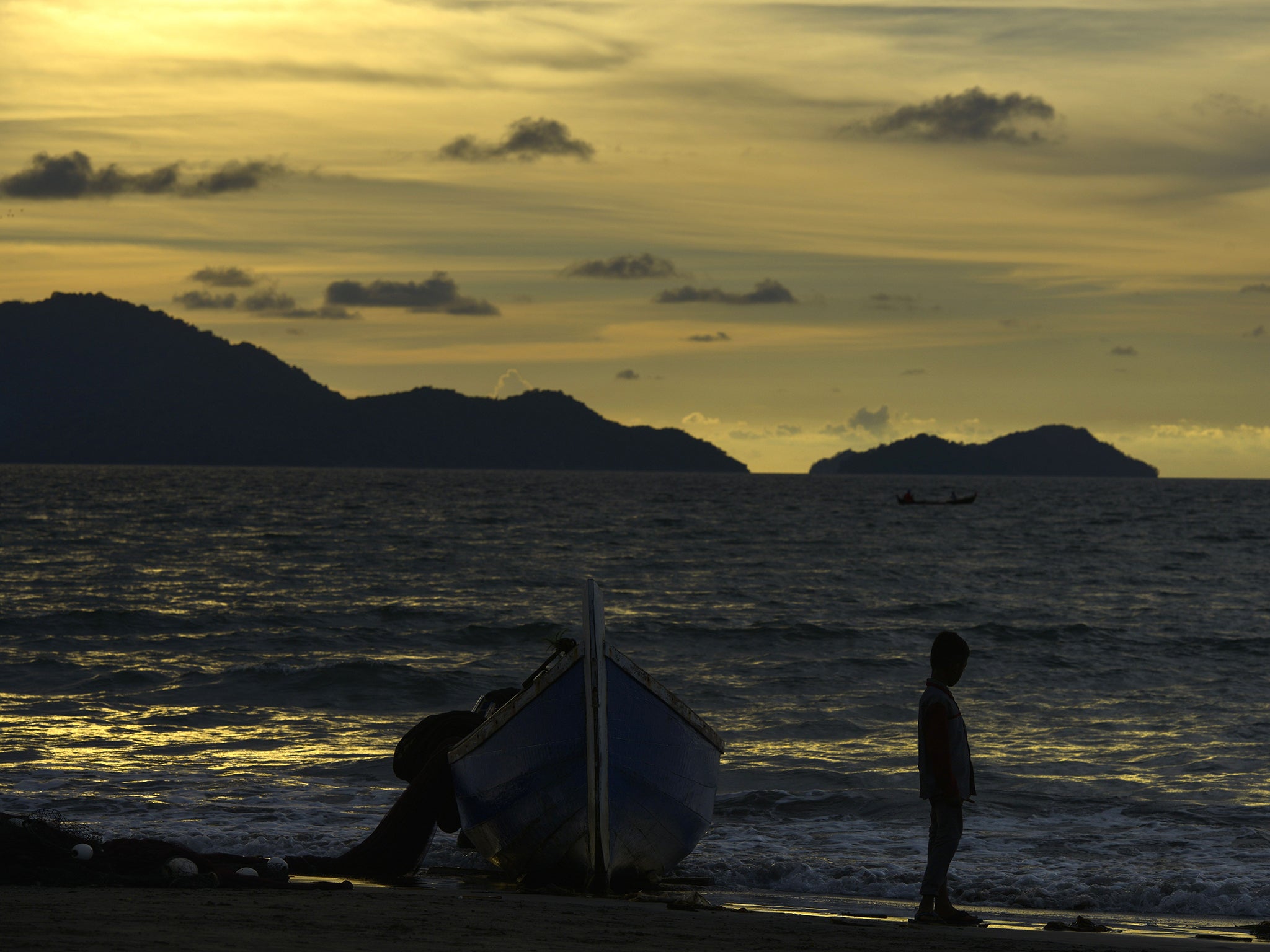Indonesia mobilises fisherman for stand-off with Chinese vessels
120 workers from island of Java could be sent to Natuna islands

Your support helps us to tell the story
From reproductive rights to climate change to Big Tech, The Independent is on the ground when the story is developing. Whether it's investigating the financials of Elon Musk's pro-Trump PAC or producing our latest documentary, 'The A Word', which shines a light on the American women fighting for reproductive rights, we know how important it is to parse out the facts from the messaging.
At such a critical moment in US history, we need reporters on the ground. Your donation allows us to keep sending journalists to speak to both sides of the story.
The Independent is trusted by Americans across the entire political spectrum. And unlike many other quality news outlets, we choose not to lock Americans out of our reporting and analysis with paywalls. We believe quality journalism should be available to everyone, paid for by those who can afford it.
Your support makes all the difference.Indonesia will mobilise fishermen to join warships in the South China Sea to help defend against Chinese vessels, the government said on Monday, as the biggest stand-off with China for years escalated off southeast Asia's largest country.
In an unusually strong statement, President Joko Widodo told reporters: "There is no negotiation when it comes to our sovereignty."
The stand-off in the northern Natuna islands, where a Chinese coastguard vessel has accompanied Chinese fishing vessels, has soured the generally friendly relationship between Jakarta and Beijing.
Indonesia's chief security minister, Mahfud MD, told reporters that around 120 fishermen from the island of Java would be sent to the Natuna islands, some 600 miles to the north.
"We want to mobilise our fishermen from the north coast and maybe in turn from other areas to operate by fishing there and other things," Mr Mahfud said.
Indonesia, the world's fourth most populous country, said last week it was sending more warships to the area. Six Indonesian ships were there now and four more were on the way, Imam Hidayat, the head of the Maritime Security Agency's sea operations sub-directorate, told Reuters.
China claims much of the South China Sea, a global trade route with rich fishing grounds and energy reserves, as its own based on what it says its historic activity. But Southeast Asian countries – and the US and much of the world – say such claims have no legal basis.
On Tuesday Chinese foreign ministry spokesman Geng Shuang said Beijing has "opened diplomatic channels" with Indonesia since the latest incident, and said "both countries shoulder responsibility for maintaining regional peace and stability".
Speaking in Beijing last week, Mr Geng said China had sovereignty over the Spratly islands and their waters and that both China and Indonesia have "normal" fishing activities there. He did not specifically mention the Natuna islands, which are southwest of the Spratlys.
Indonesian vessels often confront Chinese fishermen off the Natuna islands, but the presence of the Chinese coastguard vessel has marked an escalation this year over which Indonesia summoned the Chinese ambassador.
Last year, China engaged in a prolonged maritime stand-off in Vietnam's extended economic zone and jangled nerves with its naval presence off the Philippines and Malaysia.
The last peak in tensions between Indonesia and China over the South China Sea was in 2016, when a Chinese coastguard vessel rammed a Chinese fishing boat to free it after it had been intercepted for illegal fishing by Indonesian authorities.
Reuters
Join our commenting forum
Join thought-provoking conversations, follow other Independent readers and see their replies
Comments